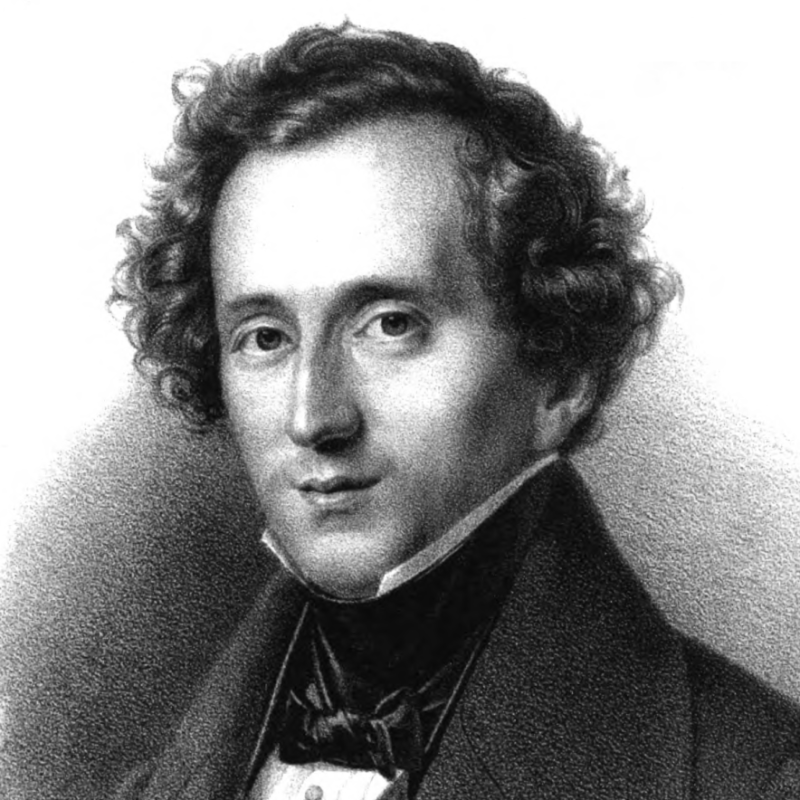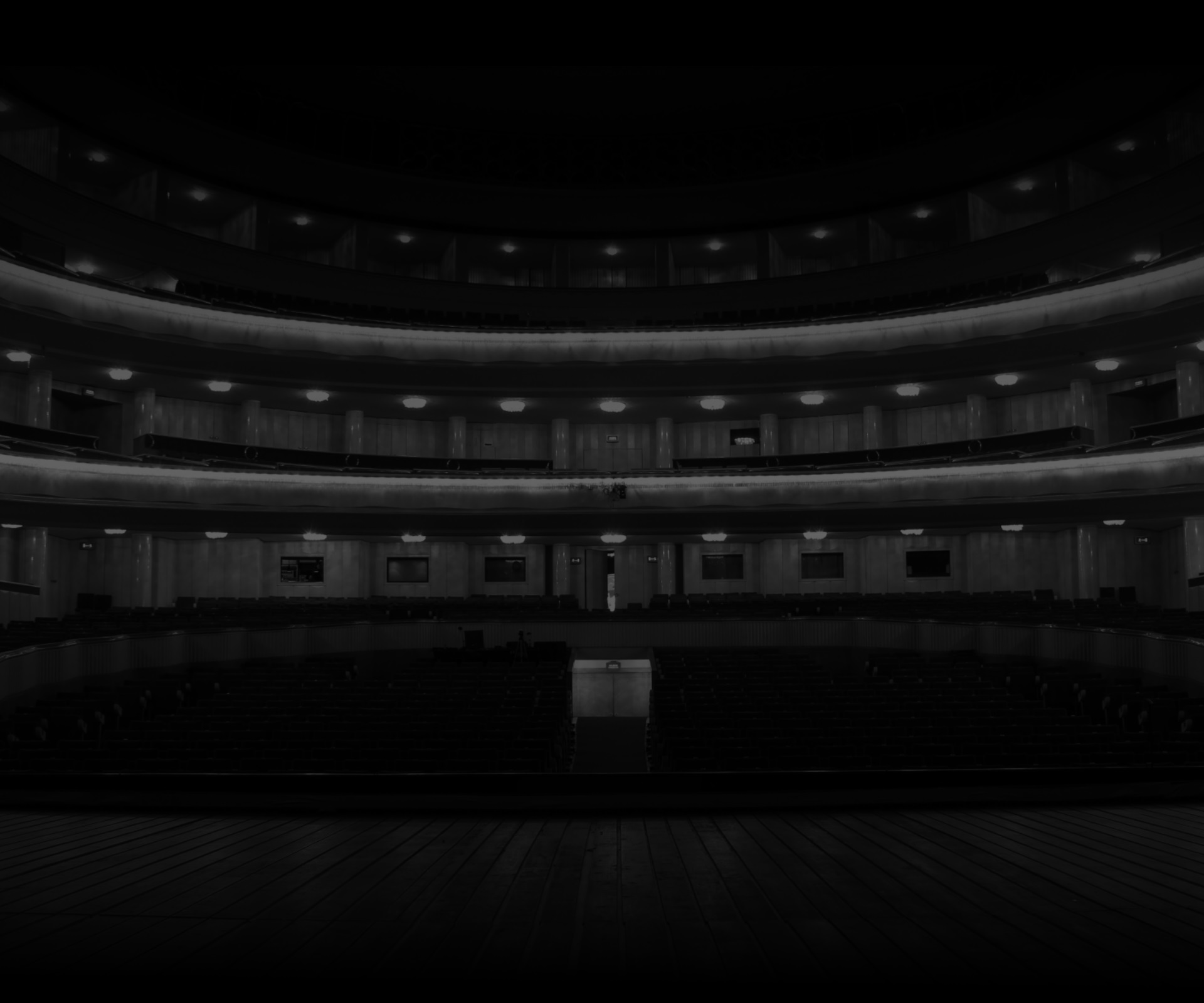
Felix Mendelssohn-Bartholdy (1809–1847) was a German composer, conductor, and pianist. He was born into a wealthy Jewish family; his parents had strong links with German intelligentsia and artistic circles. Young Felix grew up surrounded by art; he took violin and piano lessons from the earliest age – first with his mother and then a string of subsequent teachers. In 1819, together with his musically talented sister Fanny, he started studying composition under Carl Zelter. Over the following months, he wrote tens of pieces, including six symphonies for chamber orchestra, a comic opera, and a singspiel.
During a trip to Weimar in 1821, 12-year-old Felix met 72-year-old Goethe, and the two developed a lasting relationship, despite the age difference. In 1823, staying in Lozanne with his family, Felix completed his opus no. 1. At that time he also started to give public piano performances. Written in 1824, his Symphony No. 1 in C minor closed Mendelssohn's study period, which brought about nearly a hundred pieces.
Having stayed in Weimar and Paris, where he met many leading artists of the time (including Meyerbeer and Rossini), Felix and his family settled in Berlin. Soon their house became the city's principal salon, featuring concerts, talks, and performances. The first signs of maturity were beginning to show in Felix's music, e.g. the overture to A Midsummer Night's Dream (1826) composed at the time and premiered in 1827 in Szczecin.
In 1829 Felix stayed in London. From the British capital he made a trip to Scotland, which brought about his popular Scottish Symphony. Having returned to the continent, he set out on another journey, this time to south Europe, where he wrote the Italian Symphony, among other pieces. On the way back, he stopped in Paris, where he listened to Chopin's first concert. The two later developed a warm relationship.
Felix Mendelssohn-Bartholdy was an avid organiser of music life. He should be credited with introducing works by earlier composers – such s Bach or Handel – into the concert programmes of his time. Mendelssohn was also involved in the setting up of a theatre in Düsseldorf, and acted as a director of a concert hall in Leipzig.
In 1835 Felix's father died, which forced the composer to take full responsibility for himelf and his career. His private life transformed. He met Robert Schumann, who became his long-standing friend, and got married (1827). He became actively involved in the organisation of a few European music festivals, and effected the foundation of a Berlin conservatory in 1843.
In the meantime Mendelssohn's mother and his beloved sister Fanny, also a composer, both died. His own deteriorating health forced the artist to cancel concerts and quit all organisational activity. He died of a stroke and was buried in Berlin, next to his sister.
Controversies is a series of debates on the opera as a cultural phenomenon. The project offers space to talk contexts, search for news interpretations, venture into unknown territories.
In the 2014/15 season we will be reflecting on motifs from selected titles, reaching out to different arts -- especially the cinema. We have planned a series of film screenings to take place in Warsaw's studio cinemas, and serve as food for discussion. Terra incognita of old-time dilemas has already been conquered to some degree, yet the opera continues to prove that there is still more to discover...
I. "CIRCLES OF ALIENATION" IN OPERA -- THE MERCHANT OF VENICE
Taken from the title of Michał Głowiński’s book, such areas of incompatibility are important for the biography and musical oeuvre of Andrzej Czajkowski (André Tchaikowsky). A struggle with identity and constant tension between expectation and fulfilment defines the lines along which reflections on alienation develop. Gay? Jew? Utopia of coherence?
II. OPERA HUMANA -- MARIA STUARDA
Kant’s starry sky is sometimes overcast. Where should we seek advice? Psychoanalysis tries to answer questions on the imperative of human activity, on the driving force that controls our choices. Is it other people, our own experience, toxic parents, childhood, traumatic events, love or hatred? Why do we need responsibility and does a morality of music exist?
III. THE SYNAGOGUE OF SATAN -- POWDER HER FACE
The meanders of femininity are an inexhaustible theme. Woman controlled by desires, hysterical, a witch – battling this image has taken centuries. Never fear: this is just a masculine projection, a sublimation of male fears, specifically created in its own non-image – or so feminism reassures us. Is the Duchess of Argyle a woman enslaved or just the opposite – emancipated? Are the opinions about her an argument in the anti-feminist discus- sion or a victory for feminism? From Orpheus, through Przybyszewski, Poe and Dostoyevsky, to Berg and Adès.
IV. THE TERRITORIES OF OPERA -- THE 'P' PROJECT
The death of opera has been announced many times before. But today, does not the old term dramma per musica seem a more appropriate name? What challenges do 21st century artists face from opera as an art, and what from opera as an institution? What does it have that provokes, entices, repels? How do today’s generations of composers approach the reality of opera theatre? Is the composer struggling with the institution a battle whose result is a foregone conclusion? Creative strategies and work tactics – opera is (not) dead.
V. WITNESS OF THE TIMES -- WILLIAM TELL
An assassination attempt on Napoleon III was made in 1858. The emperor was on his way to see a production of William Tell. For decades Rossini’s opera had to wait in the vestibule of Milan’s La Scala. The Nazis banned it. It was cut, modified, it was politically and ideologically inconvenient. William Tell – a work of art as a witness of history.





